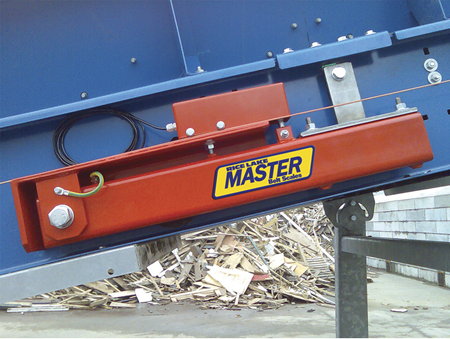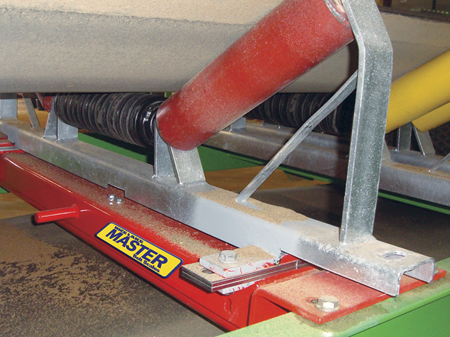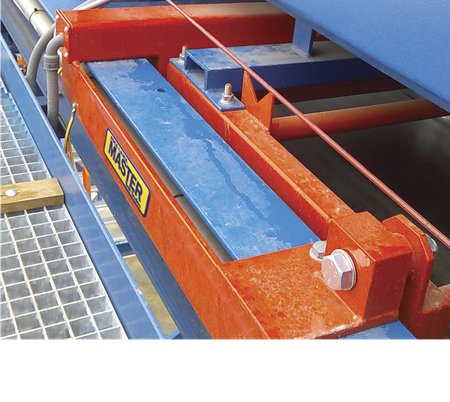Is the website displaying in the correct language? Please confirm or select a different language.
Your region has been set automatically. Please confirm or select a different region.
Belt Scales for Recycling Centers
Conveyor belt scales measure the throughput of bulk goods from point A to point B.
The main components of belt scales are weigh frames that have load cells and idlers or rollers to support the conveyor belt. Conveyor belt speed is measured with an encoder or tracking wheel mounted on the return belt. Weight and speed are combined in the weight processor, or integrator, to determine the product flow in kilograms or tons per hour.
Weight processors can communicate with PLCs through Profibus, Profinet, Ethernet and similar systems, while USB, Wi-Fi and Bluetooth® allow weight information to be sent to peripheral equipment such as printers and computers.
Material Handling with Belt Scales at Recycling Facilities
The recycling industry is unique and requires specialized equipment. Due to the nature of material in recycling, conveyor belts are built to be enclosed to keep spindle and dust contained to the belt. In this case, it’s necessary to use a belt weigh frame that can be positioned outside of the belt to simplify scale maintenance. Belt scales used in recycling measure and register the main and waste flows separately.
Maintenance Needs for Belt Scales
When belt scales are being used in Legal for Trade applications, or anytime materials are sold based on weight, it is critical to ensure the scale is properly calibrated. The belt scale and conveyor must have Legal for Trade approval with routine inspections and calibrations to ensure accuracy.
Choosing the correct weigh frame for your conveyor is the first step to ensuring accuracy with your belt scale. You may want to consult with a belt scale expert to find the option that meets your requirements for precision. Additionally, the conveyor must be maintained and an automatic tension device, such as a ratchet, must be present with the conveyor belt.
Belt scales are calibrated and inspected for accuracy when the system is installed. Typically, this is done by weighing a truck loaded with material on a truck scale and comparing that load with the total from the belt scale.
Expert Scale Support
Rice Lake Weighing Systems’ belt scale experts can offer advice on choosing the right belt scale for your needs as well as offer on-site support during installation and maintenance. Learn more about the belt scales Rice Lake offers to get started finding the right solution.



 My Account
My Account


